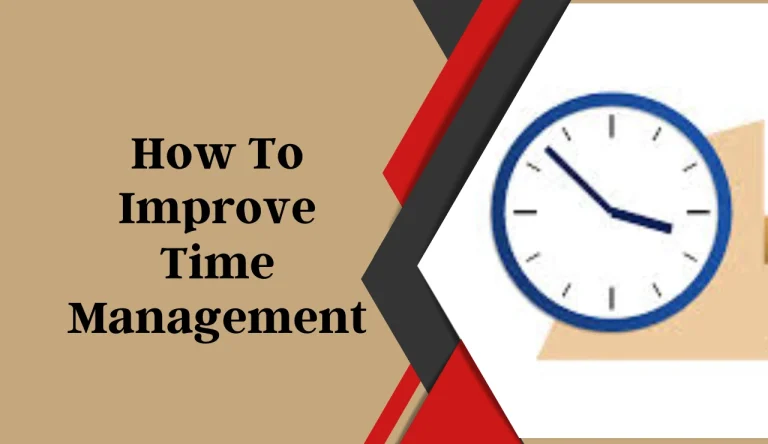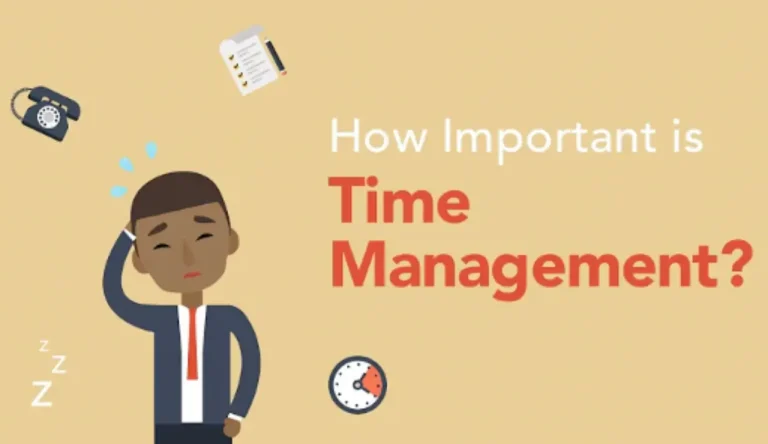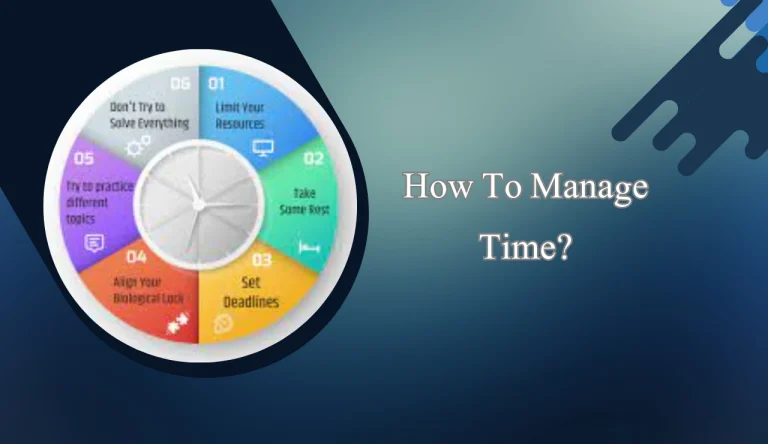Why Is Time Management Important In The Workplace
Do you ever feel like there just aren’t enough hours in the day to accomplish everything you need to at work? The truth is, you’re not alone. Why Is Time Management Important In The Workplace? Many people struggle with managing their time effectively in the workplace, which can lead to stress, missed deadlines, and decreased productivity. That’s why mastering the art of time management is crucial for your success.
By prioritizing tasks, setting clear goals and deadlines, minimizing distractions, delegating responsibilities when needed, utilizing time management tools and techniques, maintaining a healthy work-life balance, and continuously evaluating and adjusting your strategies, you can become a master of your own schedule.
In this article, we will explore why time management is so important in the workplace and provide practical tips and techniques to help you maximize your productivity. So let’s dive in and discover how effective time management can transform your workday from chaotic to organized and efficient!
Key Takeaways
- Many people struggle with time management in the workplace, leading to stress and decreased productivity.
- Mastering time management is crucial for success at work.
- Prioritizing tasks and setting clear goals and deadlines are important for effective time management.
- Utilizing time management tools and techniques can help maximize productivity.
Prioritize Your Tasks
You must prioritize your tasks in order to effectively manage your time and ensure that you are focusing on the most important and urgent responsibilities. Efficient scheduling is key in the workplace, as it allows you to allocate your time wisely and maximize productivity.
By determining which tasks are most crucial for the day, you can organize your workload accordingly. Start by identifying deadlines and deliverables, then rank them based on their importance and urgency. This will help you stay focused on what needs to be done first, preventing procrastination or wasting time on less significant tasks.
Task organization is also essential for efficient time management. Break down larger projects into smaller, more manageable tasks, setting realistic deadlines for each one. This will allow you to track progress and accomplish goals step by step while staying organized throughout the process.
Set Clear Goals and Deadlines
Start by clearly setting your goals and deadlines to ensure a smooth workflow and increased productivity. When you have clear goals, you know exactly what needs to be accomplished, which helps you stay focused and motivated. Setting deadlines gives you a sense of urgency and prevents procrastination. It also allows you to prioritize tasks effectively, ensuring that important projects are completed on time.
To help you meet objectives and meet deadlines, use the table below as a guide:
| Goal | Deadline |
|---|---|
| Complete project A | End of this week |
| Submit report B | By next Monday |
| Schedule meeting C | Before Friday |
| Finish task D | Within two days |
By setting clear goals and deadlines, you can better manage your time, allocate resources efficiently, and ultimately achieve success in the workplace. Remember to regularly review and adjust your goals if necessary to stay on track.
Minimize Distractions
Diminish distractions and double down on your focus to enhance efficiency and effectiveness in your daily tasks.
In today’s fast-paced workplace, it’s crucial to avoid multitasking and instead concentrate on one task at a time. Multitasking can lead to decreased productivity and increased errors.
Minimizing distractions allows you to fully immerse yourself in the task at hand, improving your ability to stay focused and complete it efficiently.
Start by eliminating unnecessary interruptions such as phone notifications or excessive social media use during working hours. Create a dedicated workspace that’s free from clutter and noise, enabling you to concentrate better.
Additionally, prioritize important tasks and allocate specific time slots for them without any interruptions or distractions.
By minimizing distractions, you can significantly improve your focus, resulting in enhanced productivity and better time management in the workplace.
Delegate Responsibilities
Delegate your responsibilities to others in order to lighten your workload and increase overall efficiency. Effective time management involves recognizing that you can’t do everything on your own.
By delegating tasks to capable team members, you not only free up your time but also foster a sense of teamwork and collaboration. Here are three ways effective delegation can improve productivity:
- Improved efficiency: Delegating responsibilities allows you to focus on high-priority tasks while ensuring that other important tasks are being handled by competent individuals.
- Enhanced expertise: When you delegate tasks, you give others an opportunity to develop their skills and expertise, ultimately benefiting the entire team.
- Effective communication: Delegation requires clear instructions and open communication channels, which help build trust within the team and ensure everyone is on the same page.
By effectively delegating responsibilities, you create a more productive work environment where everyone’s strengths are utilized efficiently through effective communication and team collaboration.
Use Time Management Tools and Techniques

Maximize your productivity by utilizing effective time management tools and techniques that can help you stay organized and make the most of your resources.
Time tracking is an essential tool for managing your work schedule, allowing you to monitor how much time you spend on different tasks and identify areas where you may be wasting valuable minutes. By tracking your time, you can prioritize tasks, set realistic goals, and allocate resources efficiently.
In addition to time tracking, there are numerous productivity improvement techniques available. One popular technique is the Pomodoro Technique, which involves breaking work into 25-minute intervals with short breaks in between. This method helps improve focus and prevents burnout.
Another useful tool is a task management system such as a to-do list or project management software, which allows you to organize tasks, set deadlines, and track progress.
By using these time management tools and techniques consistently, you can enhance your productivity and achieve better results in the workplace.
Maintain a Healthy Work-Life Balance
Maintaining a healthy work-life balance is crucial for overall well-being and fostering personal fulfillment in both professional and personal spheres. Achieving work-life integration and harmony can greatly improve productivity, job satisfaction, and mental health.

Here are some practical tips to help you maintain a healthy work-life balance:
- Set boundaries: Establish clear boundaries between your work life and personal life. Define specific working hours and stick to them.
- Prioritize self-care: Make time for exercise, relaxation, hobbies, and spending quality time with loved ones.
- Delegate tasks: Learn to delegate tasks at work when possible to alleviate stress and free up your time for other activities.
- Avoid overworking: Resist the temptation to constantly check emails or take on additional projects outside of regular working hours.
By implementing these strategies, you can create a more balanced lifestyle that allows you to thrive in both your professional and personal pursuits.
Remember, maintaining work-life balance is essential for long-term success and happiness.
Continuously Evaluate and Adjust Your Time Management Strategies
To ensure you make the most of your day, it’s crucial to regularly assess and adapt your strategies for effectively organizing and utilizing your time. Studies have shown that individuals who regularly evaluate their productivity habits are 40% more likely to achieve their goals. One effective way to evaluate progress and improve efficiency is by continuously monitoring how you spend your time throughout the day. A helpful tool to do this is by using a time-tracking app or creating a simple spreadsheet where you can log your activities and the amount of time spent on each task. By doing so, you’ll be able to identify any patterns or areas where you may be wasting time or not allocating enough time. This evaluation will enable you to adjust your schedule accordingly, ensuring that you’re utilizing your time in the most efficient manner possible.
| Activity | Time Spent |
|---|---|
| Emails | 30 minutes |
| Meetings | 1 hour |
| Project work | 2 hours |
| Breaks | 30 minutes |
By evaluating these logs over a period of time, you can identify opportunities for improvement and make necessary adjustments to maximize productivity. For example, if you notice that meetings are taking up a significant portion of your day, consider whether all of them are truly necessary or if some could be shortened or eliminated altogether. Additionally, if breaks consistently take up more time than allocated, find ways to limit distractions during those periods. Continuously evaluating and adjusting your time management strategies will allow you to stay on track with deadlines and accomplish tasks efficiently while maintaining a healthy work-life balance.
Frequently Asked Questions
Conclusion
In conclusion, time management is crucial in the workplace for a multitude of reasons. By prioritizing tasks and setting clear goals and deadlines, you can ensure that your work is completed efficiently and effectively.
Minimizing distractions and delegating responsibilities will also contribute to increased productivity. Utilizing time management tools and techniques can help streamline processes and save valuable time.
It’s important to continuously evaluate and adjust your strategies to optimize productivity. Remember, time is money, so make every second count!
Read More:
Do I Need Business Insurance If I Work From Home






